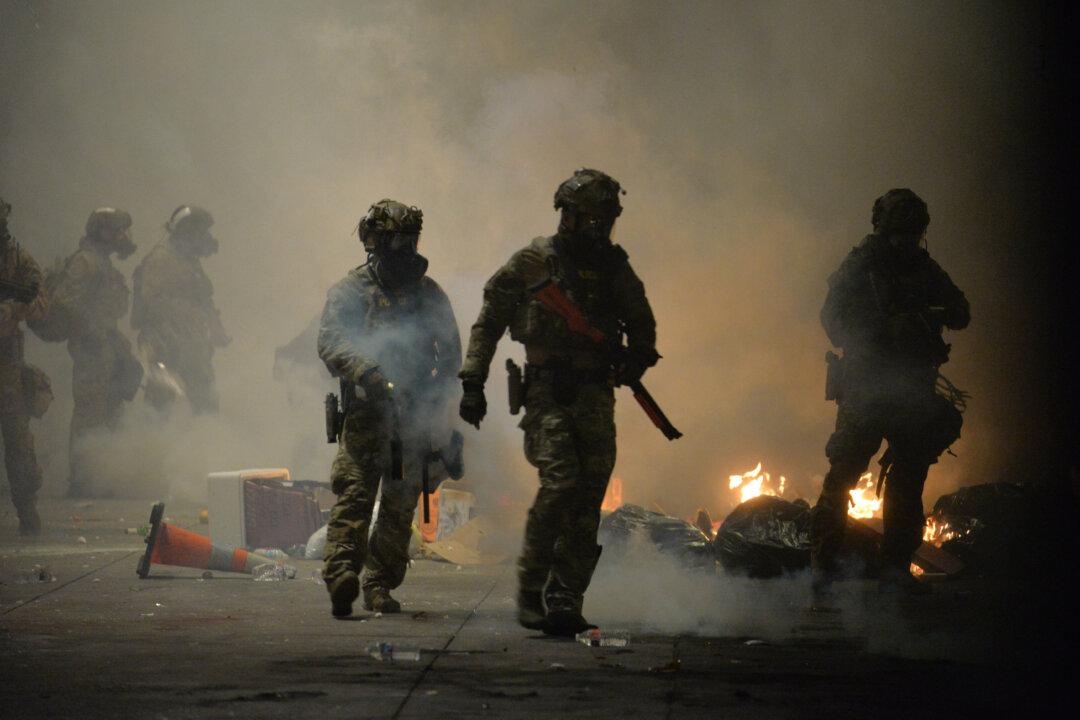A federal judge in Oregon on July 24 denied a request for an order by the state’s attorney general to restrict how Department of Homeland Security (DHS) agents act when arresting rioters during the nightly unrest in Portland.
Portland has seen more than 50 nights of riots which regularly evolve out of peaceful daytime demonstrations in response to the police-custody death of George Floyd. The rioters recently switched their focus to federal property, vandalizing and setting fires near a courthouse. Regular protective staff in the buildings called for federal reinforcements upon being overwhelmed.





